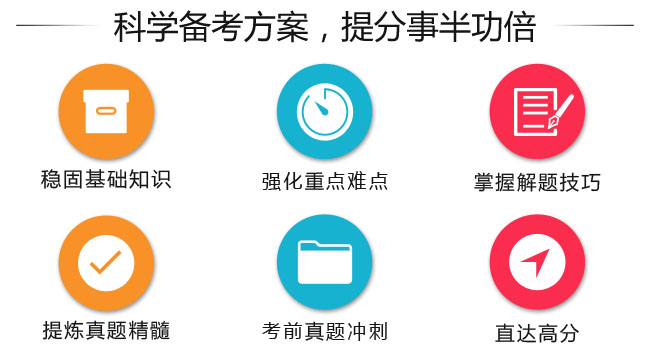2018年12月亚太地区SAT考试阅读部分考情速递!(第四篇)
2018年12月份的SAT考试已经结束了,各位小伙伴考的怎么样呢?上海SAT培训小编为大家整理出了阅读部分和写作部分的考题,考完的小伙伴可根据原题进行总结,还参加12月份考试的可以了解一下本次的出题方向和特点。前三篇小编已经发过了,今天接着分享第四篇
相关阅读:
2018年12月亚太地区SAT考试阅读部分考情速递!(第二篇)
2018年12月亚太地区SAT考试阅读部分考情速递!(第三篇)
第四篇
This passage is adapted from Ori Brfman and Rom Brafman ,sway :the irresistible pull of irrational behavior
考题文章节选:
You know there’s a new nonfiction genre by the titles alone — Blink, Nudge, Predictably Irrational… and now Sway. This book is probably best compared with Dan Ariely’s Predictably Irrational, but to me the Brafman brothers’ book seemed easier to digest — partially because it’s shorter, but also because it doesn’t seem to discuss as many experiments in as excruciating detail as Ariely tended to do.
The thesis is largely the same — we humans think we act rationally in most situations, especially in business or areas of our life that would seem to call for rational thinking (e.g., work). What Ori and Rom Brafman (a businessman and a psychologist, respectively) show instead is what we all know from Ariely and others before him — humans are irrational and will act in irrational ways in many (most?) situations. They call this being “swayed,” hence the book’s title.
Sway opens with a convincing example — the historic KLM flight where the pilot made a seemingly irrational decision that cost the lives of 584 people in 1977, the largest airline disaster in history. The authors make the argument that because the pilot was so focused on getting to his final destination after being diverted, he was swayed into making a wholly irrational decision which ended in tragedy. How was he swayed specifically? Well, the book revisits the KLM disaster a few times to flesh out the underlying irrational decisions likely being made by the pilot (I say likely, because the pilot died in the crash as well).
Here are the major, salient “sways” mentioned in the book and their descriptions:
We often overreact to potential losses, focused more on the short-term consequences rather than the longer-term effects.
The more meaningful a loss is, the more loss averse we become, meaning we don’t want to give up our hold on the loss (even when it’s economically, emotionally or otherwise beneficial to do so)
We hold on to the pervasive pull of commitment. When we are committed to a relationship, decision, or position in our lives, it can be very difficult for us to see the better, healthier alternatives available.
Humans have a tendency to imbue someone or something with certain qualities based on its perceived value rather than objective data. This is called value attribution.
If we see something labeled a certain way, we’ll take that label at face value.
The authors have two amusing examples of value attribution at work — a world-famous violinist is mistaken for a street musician in the subway; a SoBe energy drink is only as valuable in helping improve your memory as you think it is.
When things are discounted off of their regular price, people tend to give the product or service a reduced value attribution. In other words, when we get a discount on something, we tend to unconsciously value it less than if we had paid full price.
Humans have a propensity to label people, ideas or things based on our initial opinions of them. The authors term this the “diagnosis bias,” and it includes our inability to reconsider those initial value judgments once we’ve made them.
Again, the authors bring this sway to life with their examples of how players perform directly in relationship to their NBA draft pick number, amongst many others.
A single word or label can color our entire perception of a person, closing off avenues of shared experience and seeing people for who they really are. Once a person is given a label (and even directly, a diagnosis), it’s hard for people to see people in a way that isn’t biased by that label.
The authors also note that hiring interviews are bogus, completely unscientific and at the end of the day, quite terrible at helping managers choose a good employee.
“Mirror, mirror” effect – we like and look for people like us
We constantly sway others and are constantly being swayed by our expectations and labels — what the authors call the “Chameleon effect.”
People want and expect fairness in all of their dealings with other people, companies and organizations.
It is vitally important for people to feel they have a voice. People want to be listened to and heard, even if nothing changes.
Talking through our reasons for a price or our position in an argument or debate, explaining how we arrived at it, and communicating what we feel is the fair thing to do makes other people feel like we’ve treated them more fairly and reasonably.
We can either approach a task altruistically or from a self-interested (opr pleasure) perspective, but usually not both at the same time.
When the two centers of the brain (altruism and pleasure) compete, pleasure usually wins.
When the pleasure, self-interested perspective is operating, unexpected behavior or effects can occur.
It’s not that rewards for specific tasks or behavior are bad, it’s the possibility of a reward dangled ahead of time that can potentially result in destructive, unintended effects.
It’s okay to reward someone after the fact, but don’t always create the possibility of the reward ahead of time. And know that money defeats/negates altruism.
Groups can have profound effects on our ability to reason rationally.
Dissent is invaluable – you need a dissenter, even if you don’t agree with the specific dissent itself.
Dissenters open up discussion and allows to express their views.
上海SAT培训哪家好?新航道sat培训,小班教学,团队一对一指导,助教全程跟踪辅导,直达高分不在是梦。









